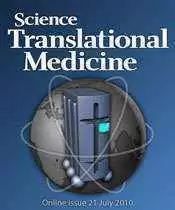Celiac.com 09/15/2009 - Active delivery of recombinant autoantigens or allergens to intestinal mucosa by genetically modified Lactococcus lactis (LL) offers a unique therapeutic approach for the induction of tolerance to gluten proteins.
A team of researchers recently set out to determine whether oral administration of LL-delivered DQ8-specific gliadin epitope induces Ag-specific tolerance.
Celiac.com Sponsor (A12):
The research team was made up of Inge L. Huibregtse, Eric V. Marietta, Shadi Rashtak, Frits Koning, Pieter Rottiers, Chella S. David; Sander J. H. van Deventer, and Joseph A. Murray under the auspices of the Center for Experimental and Molecular Medicine of the Academic Medical Center of the University of Amsterdam in the Netherlands.
Celiac disease is associated with either HLA-DQ2- or HLA-DQ8-restricted responses to specific antigenic epitopes of gliadin, and may be treated by induction of Ag-specific tolerance.
The research team engineered LL to secrete a deamidated DQ8 gliadin epitope (LL-eDQ8d) and then observed the induction of Ag-specific tolerance in NOD AB degrees DQ8 transgenic mice. The team measured tolerance by delayed-type hypersensitivity reaction, cytokine measurements, eDQ8d-specific proliferation, and regulatory T cell analysis.
Oral administration of LL-eDQ8d induced suppression of local and systemic DQ8-restricted T cell responses in NOD AB degrees DQ8 transgenic mice. Result was an Ag-specific decrease of the proliferative capacity of inguinal lymph node (ILN) cells and lamina propria cells. Production of IL-10 and TGF-beta and a significant induction of Foxp3(+) regulatory T cells were associated with the eDQ8d-specific suppression induced by LL-eDQ8d.
These results support the development of orally administered Ag-secreting LL to treat gluten-sensitive disorders. Such treatments may be effective even in cases of established hypersensitivity.
Open Original Shared Link



.webp.1f08a49fe26362053f050355fa630687.webp)




Recommended Comments